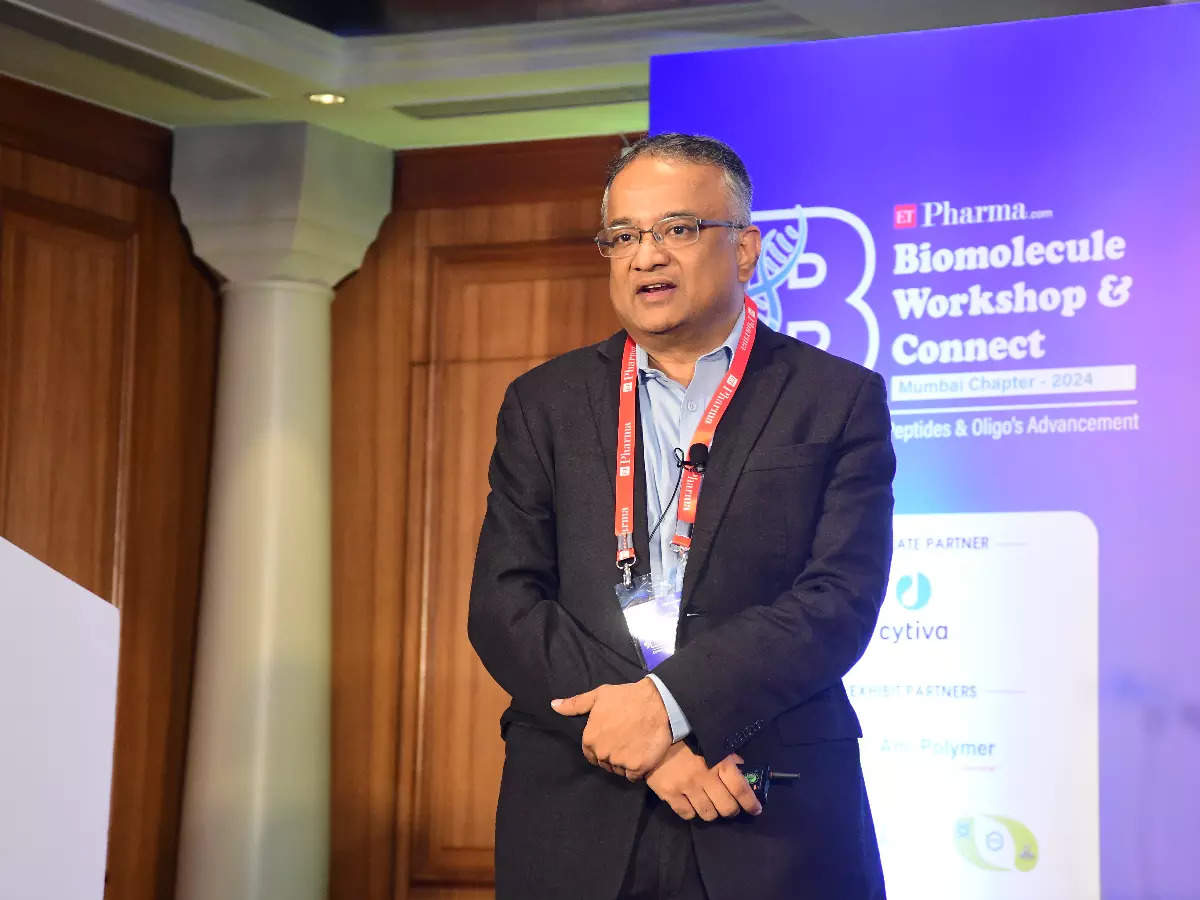[ad_1]

By Prathiba Raju and Abhijeet Singh
New Delhi: Peptides and oligonucleotides are complex and these drugs are magical in terms of how they can treat disease states. They are complex molecules, which has a big interest in the developed countries, informed Dr Manoj Pannachukunnath, Chief Scientific Officer, Biocon who took centre stage at the ETPharma Biomolecule workshop and connect, Mumbai chapter event. Addressing a captivated audience, he delivered an insightful keynote address on ‘Cracking the code of complex pharmaceuticals: Exploring Critical Quality Attributes in Peptides and Oligonucleotides.
In his address he provided his valuable insights to industry players for obtaining regulatory approvals for their product and addressed various problems encountered by them in the mid-way process.
One of the key issues which he mentioned was the absence of specifications and methodologies in the industry which restricts companies to test their product under varying conditions. He further added that the variations are leading to rejection of their approval applications, and certain companies’ unwillingness to rigorously test their drugs.
Echoing the responsibility and accountability of companies to ensure both efficacy of drugs along with the safety of patients, Dr Pannachukunnath said,”Just testing the product for quality is not enough. What is more important is how do you build manufacturing processes.”
“Testing a batch for quality is just a confirmation, a random confirmation that the chosen processes, practices and material sourcing philosophies, all converge to a point that you have a product which meets safety requirements,” he added.
Touching upon the difficulties faced by manufacturers due to variations in Indian and global regulations, providing explanation he said “Indian regulations talk about purity more, they say the product should be 99 per cent or 99.5 per cent pure, but the global regulations don’t even acknowledge expectation on purity, they talk about impurity and the level of impurities.”
In his presentation the expert briefly described various techniques used in the pipeline for producing peptides and what all issues manufacturers could come across and address, apart from it he shared insights related to quality control mechanism.
Dr Manoj also shared some data points from various analysts highlighted that the peptide industry to grow at 9.1 per cent CAGR (Compounded-Annual Growth Rate) and expected to reach $100 billion by 2033 while in the same period the oligonucleotides industry projected to reach $44-45 billion with a CAGR of 7.1 per cent.
In his closing remarks, he focused on the importance of monitoring manufacturing processes and urged industry players to understand material attributes, process parameters, QBD and obtain analytical expertise for testing, characterising and most importantly to understand the product for smoothly obtaining licenses without compromising on quality standards and patient health.
[ad_2]
Source link







